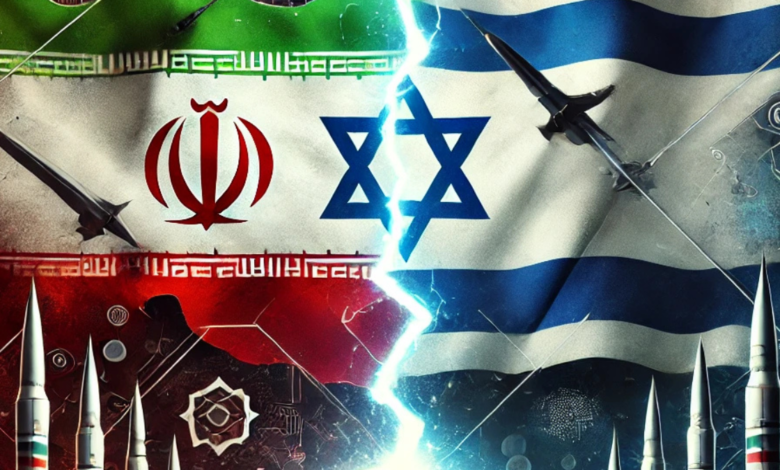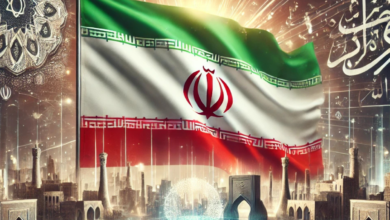Iran Israel Relations A Historical and Geopolitical Analysis

The relationship between Iran Israel is one of the most complex and volatile geopolitical dynamics in the Middle East. This intricate interplay of politics, ideology, and history has shaped regional and global alliances over decades. Understanding the evolution of Iran-Israel relations offers insights into broader Middle Eastern tensions and the strategic calculus of international powers.
Historical Context of Iran-Israel Relations
Pre-1979: A Period of Cooperation
Before the Iranian Revolution in 1979, Iran Israel maintained amicable relations. During the reign of Shah Mohammad Reza Pahlavi, Iran and Israel they shared common strategic interests, particularly concerning mutual threats from Arab nationalist states like Egypt and Iraq. Iran israel was one of the first Muslim-majority countries to recognize Israel, and the two nations collaborated in areas like trade, agriculture, and defense.
Post-1979 Revolution: A Turning Point
The Islamic Revolution of 1979 radically altered iran israel foreign policy, replacing the Shah’s pro-Western stance with a revolutionary Islamist ideology. Ayatollah Khomeini’s regime declared Israel an illegitimate state, referring to it as the “Zionist regime.” This marked the beginning of a hostile relationship driven by Iran’s ideological commitment to opposing Israel and supporting Palestinian liberation movements.
Geopolitical Drivers of Conflict
- Ideological Divide
Iran’s government views opposition to Israel as a core element of its identity, branding itself as a defender of Muslim interests against perceived Western and Israeli oppression. This ideological divide fuels tensions as Israel, a democratic state with a secular framework, counters Iran’s Islamist rhetoric.
- Regional Hegemony
Both iran israel and Israel seek to expand their influence in the Middle East. iran israel uses its alliances with proxy groups like Hezbollah in Lebanon and Hamas in Gaza to challenge Israeli security. At the same time, Israel works to counter Iran’s influence through regional partnerships and military actions.
- The Nuclear Issue
A significant source of contention is iran israel nuclear program. Israel considers a nuclear-armed iran israel an existential threat and has conducted cyber-attacks and military operations to thwart Iran’s nuclear ambitions. Conversely, iran israel views its nuclear program as a symbol of sovereignty and a counterbalance to Israeli power.
Key Flashpoints in Iran-Israel Relations
- The 2006 Lebanon War
Iran’s support for Hezbollah, a Shiite militant group, has been a focal point of conflict with Israel. The 2006 Lebanon War saw Hezbollah launch rockets into Israel, leading to a 34-day conflict that demonstrated iran israel capacity to challenge Israel indirectly.
- Proxy Conflicts in Syria
The Syrian Civil War further deepened tensions as iran israel provided military and financial support to the Assad regime. Israel responded with airstrikes targeting iran israel forces and weapons shipments in Syria, aiming to limit Tehran’s entrenchment near its borders.
- Cyber Warfare
Both nations have engaged in cyber-attacks against each other. Israel’s Stuxnet operation, which disrupted iran israel nuclear facilities, exemplifies the high-stakes technological battle between the two.
Global Implications of Iran-Israel Tensions
- Impact on U.S. Policy
The United States plays a pivotal role in the iran israel -Israel dynamic. Israel’s alliance with the U.S. and Washington’s opposition to Iran’s nuclear program have influenced sanctions, military strategies, and diplomatic efforts in the region.
- Shifting Arab Alliances
The Abraham Accords, which normalized relations between Israel and several Arab states, represent a significant geopolitical shift. These alliances aim to counterbalance Iranian influence in the Middle East, further isolating Tehran.
- Threat to Global Energy Security
Tensions between iran israel and Israel can disrupt vital shipping routes, such as the Strait of Hormuz, affecting global energy supplies. This volatility underscores the broader stakes of their rivalry.
The Future of Iran-Israel Relations
The trajectory of Iran-Israel relations remains uncertain. Factors like leadership changes, external diplomatic interventions, and regional realignments could influence the nature of their rivalry. Despite ongoing hostilities, mutual deterrence and international pressure may prevent large-scale conflict.
However, the emergence of new technologies, shifting alliances, and evolving domestic politics in both countries suggest that the Iran-Israel relationship will remain a focal point of Middle Eastern geopolitics for years.
FAQs About Iran-Israel Relations
1. Why did Iran and Israel have friendly relations before 1979?
Before the Islamic Revolution, Iran Israel cooperated based on shared strategic interests, such as countering Arab nationalist movements and fostering economic and military ties.
2. What changed Iran’s stance toward Israel after the 1979 Revolution?
The Islamic Revolution introduced a theocratic government in iran israel that viewed Israel as illegitimate and adopted a pro-Palestinian, anti-Israel ideology as part of its identity.
3. How does the nuclear issue impact Iran-Israel tensions?
Israel views Iran’s nuclear program as an existential threat, prompting preemptive actions like cyber-attacks and airstrikes, while iran israel insists its program is for peaceful purposes.
4. What role do proxy groups play in Iran-Israel conflicts?
iran israel supports groups like Hezbollah and Hamas, which challenge Israel through military and political means, acting as proxies in the broader conflict.
5. Can diplomacy resolve the Iran-Israel conflict?
While diplomacy could reduce tensions, deeply rooted ideological differences and regional ambitions make a comprehensive resolution challenging.
This detailed analysis provides a nuanced understanding of Iran-Israel relations, highlighting the historical, ideological, and geopolitical dimensions that define their complex rivalry.
You May Also Read: https://businessprimex.co.uk/





